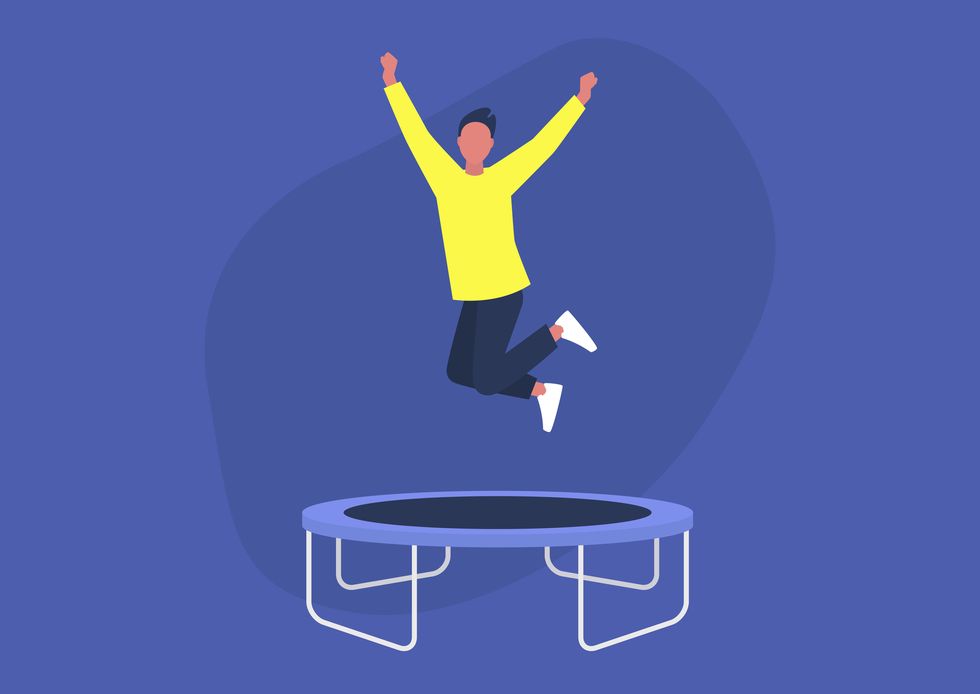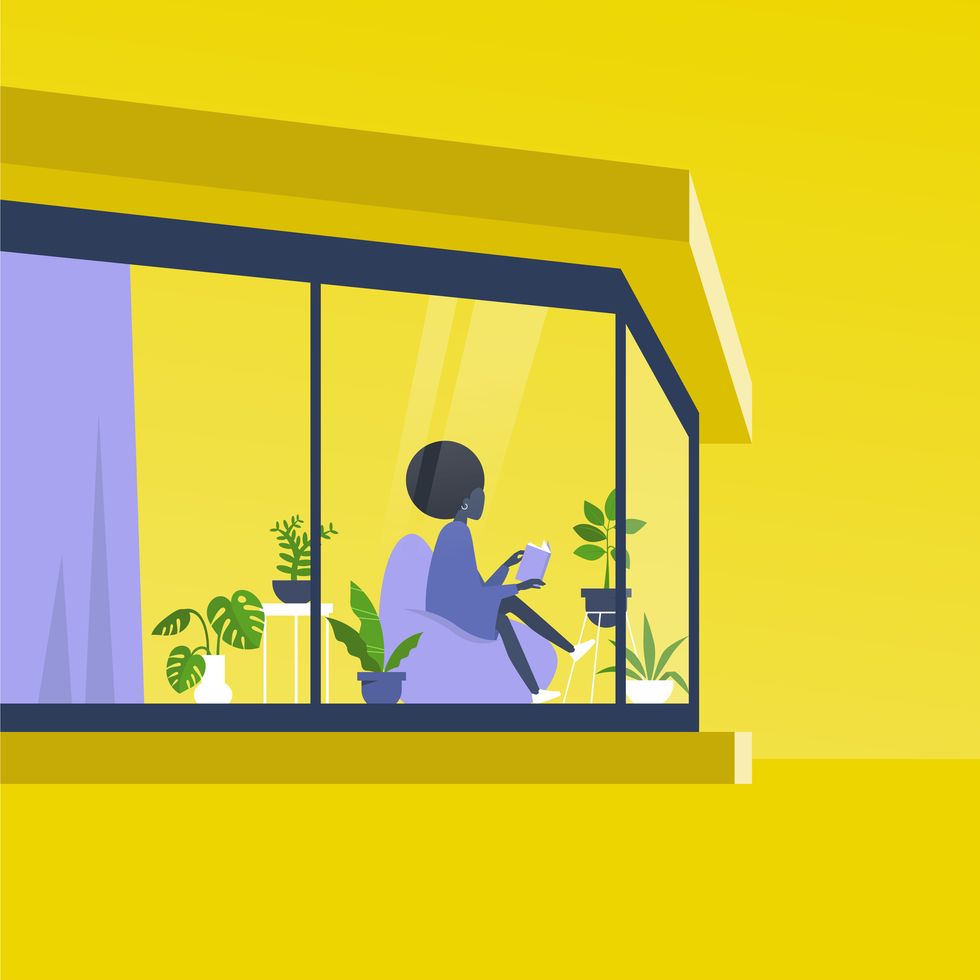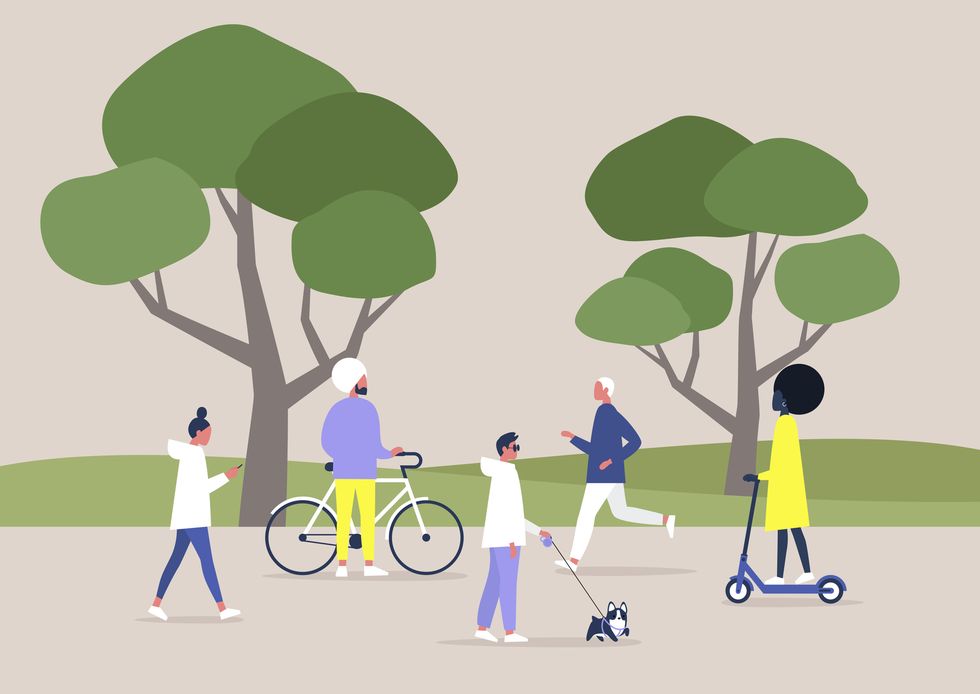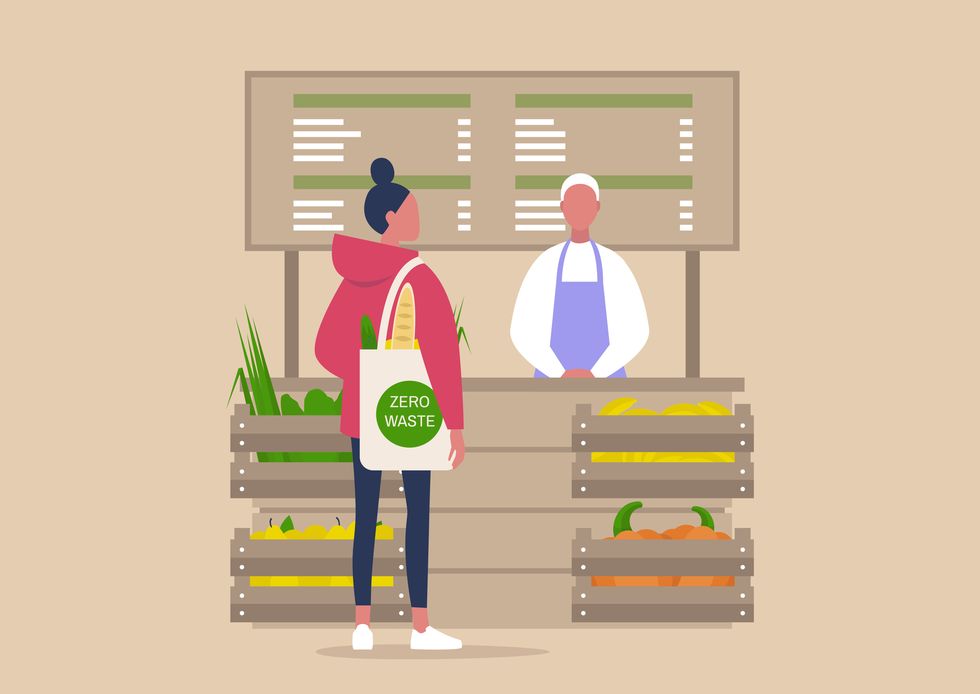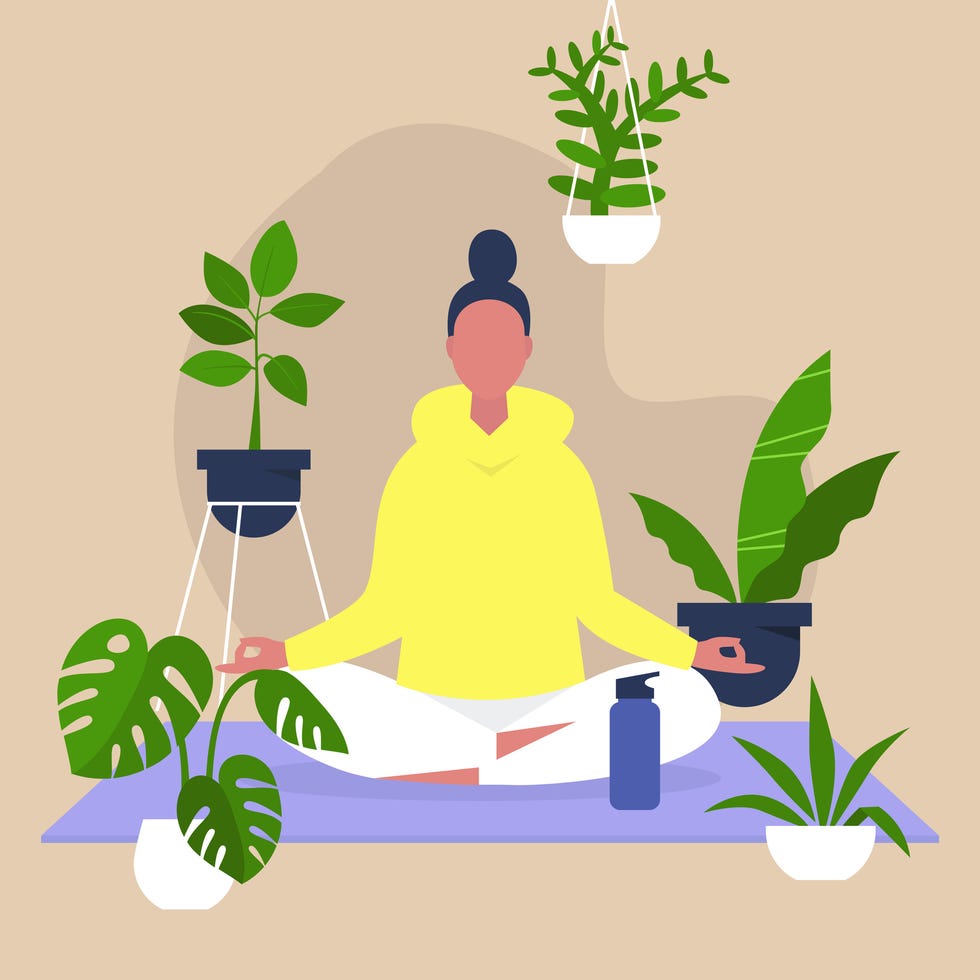It’s the sum of the little things you do every day that can make a real difference to your health, fitness sand emotional wellbeing.
Make a start today. We spoke to experts to find 21 small tweaks that will help you become healthier...
Aim for 30 plant points a week
You might be getting your five daily portions of fruit and veg, but how many different types do you eat in a week? "For boosting gut health, the goal is diversity," says dietitian Dr Megan Rossi. "I recommend eating 30 different types of plant foods each week, including fruit, vegetables, wholegrains, nuts, seeds and legumes (beans and pulses, such as lentils). Widening the variety of nutrients, types of fibre and probiotics we eat is linked to having more diverse gut microbes. Try having dried mango and pistachios as a snack (that’s two plant points), choosing a tin of mixed beans instead of just kidney beans (four plant points) and buying yellow, green and orange peppers instead of just the red (three points)."
Move your body for five minutes every hour
Lockdown reduced the light physical activity that comes with socialising and being at work. While we may be getting active again, many of us are working from home as a permanent arrangement. Compensate for those missing commutes and lunchtime walks by adding in 30 minutes of light activity during the day and moving your body for five minutes every hour. Set an alarm and walk up and down the stairs, skip with a rope or walk around the block – anything to get your heart pumping and muscles working.
Swap caffeine for movement
As well as being good for you, moving around can also combat that afternoon energy slump. "Movement can be as effective as caffeine at improving concentration and focus," says dietitian Sophie Medlin. "The only source of energy your brain can use is glucose (sugar), which is carried in your blood alongside oxygen. Walking around gets blood flowing to your brain, boosting energy levels and alertness."
Create a calming space at home.
"If you’d like to try meditation, create a space within your home for it," says yoga teacher Deb Green. "If you don’t like sitting on the floor, put in a chair with cushions and have a blanket nearby to keep you warm. You can add crystals, shells, flowers, plants and pictures of places or people that are special or inspiring to you. And light a candle to signify the start of your meditation. When you return to your meditation space daily, your mind will associate it with stillness and subconsciously know that it will find relief."
Schedule in snacks
"I often recommend my patients have a strategic snack every day at 3 or 4pm," says Sophie. "It can really help to reduce how much you graze throughout the afternoon, as well as stop you from being so hungry at 6pm that all you can think of is ordering a takeaway! It should ideally be a protein combined with a fruit or vegetable, such as an apple and nuts or nut butter."
Open the windows
"The air inside our homes can have concentrations of pollutants up to five times higher than outside," says environmental health consultant Charlie Lemmer. "New furniture, carpets, detergents and paint all secrete chemicals into the air that can become hazardous to our health. The more time you spend at home, the more your exposure to these toxins increases. Effective ways to improve indoor air quality are to consider new purchases and types of paint used, and to simply open the windows at opposite ends of your home every day to allow the air to flow through."
Tackle your phone addiction
"Mobile phone use surged during the pandemic," says Hilda Burke, psychotherapist and author of The Phone Addiction Workbook. "The average user spent 27% of their waking hours on their mobile in April 2020, up 20% from 2019. Heavy screen use can impact our wellbeing, so here are two of my top tips for weaning yourself off:
- Choose an image or word as your phone’s screen saver that represents what you’d rather be doing if you had more time, such as cooking or yoga. Considering that most of us check our phones 55 times a day, and some of us 100 times, this is a great visual reminder of better ways to spend time.
- Carve out short periods when you have your phone switched off or left at home and gradually increase the periods until you check it again."
Get cool between the covers
"Sleeping in a cooler bedroom (15-17°C) is well known to improve sleep, as it helps support a slight drop in body temperature necessary for sleep onset," says Ben Pratt, who teaches a sleep recovery course for Nordic Fitness Education. "It’s also vital to manage the microclimate between the mattress and covers, as heat under the covers is a significant sleep disruptor. Be careful to choose the right balance of duvet thickness combined with lighter/cooler pyjamas, perhaps even sleeping only in underwear or nude, to allow airflow around the body."
Don’t make your bed
"Leave the covers off or pulled back for at least 45 minutes after you get up," says Charlie Lemmer. "We perspire during the night and the sheets need time to air and dry from the moisture, otherwise moulds and house dust mites can have a field day. This is especially important for people with asthma or eczema."
Learn to focus on your ‘weaker’ side
"Unilateral training is training one side of the body at a time to build strength, correct imbalances and avoid injuries," says personal trainer Lesley Jolly. "Many exercises involve both limbs doing the same movement at the same time, which is great for muscle strengthening, but doesn’t replicate real-life movements."
Incorporate unilateral training into daily life:
- Carry your shopping on the weaker side of your body.
- Step up and down the stairs, leading with your weak side.
- Grab a water bottle with your non-dominant hand and lift it over your head.
Pick up your walking pace
Walking is a great way to stay fit, but turn your focus to pace to gain maximum benefits. Several studies have shown the benefits of a faster pace, with one showing that it’s associated with a reduced risk of all-cause mortality. Aim for at least 100 steps per minute – match the beat of Gloria Gaynor’s I Will Survive to hit the target!
Stop eating after dinner
"Overnight fasting is an easier way to get the health benefits of intermittent fasting without the feelings of deprivation and hunger," says Nicki Williams, author of It’s Not You, It’s Your Hormones. "Don’t eat anything between dinner and breakfast, leaving a gap of 12-16 hours. Benefits include weight loss, more energy, mental clarity and better digestion and sleep."
Do some Sunday meal prep
If time is limited during the week and you reach for takeaways or processed food, become a batch-cooker and pre-slicer! "Batch cooking, say, a veggie chilli at the weekend ensures you have high-fibre, high-protein meals to hand," says Bari Stricoff, a dietician for the NHS-backed healthy eating plan Second Nature.
Add tart cherry juice to your shopping list
"Studies show that Montmorency tart cherry juice can improve sleep quality and reduce insomnia symptoms," says sleep expert Ben Pratt. ‘"This may be explained, in part, by a rise in melatonin (the hormone that helps initiate sleep), which occurs following consumption. Drinking 50-100ml of tart cherry juice 60 minutes before bedtime could be just what you need to drift off more easily."
Work your biggest muscle
"The gluteus maximus is the largest muscle in the body, but I regularly see clients with poor posture, decreased hip mobility and sore backs, hips and knees due to weak glutes," says Lesley Jolly. "These large, powerful muscles need to be activated daily.While you’re making a cuppa, stand up straight, take a small step back with your left leg, take a soft bend through your right knee and shift your weight across into your right hip. Now imagine that you have dropped something by the little toe of your right foot and need to pick it up using your left hand. Slowly reach down and across, pushing into your right hip and glute. When you feel the “bite” in your glute and hamstring, come up to standing. Repeat 10 times before swapping to the other side."
Up your flavanols
"Add cacao nibs to your porridge or yogurt,’ says nutritionist Jenna Hope. ‘Cacao is a source of magnesium, which is important in managing high blood pressure. It also contains flavanols (chemical compounds found in plants), which support heart health." Flavanols were also found to help blood vessels function better during mental stress in a University of Birmingham study. Other flavanol-rich foods are apples, black grapes, blackberries, green tea, raspberries, pears, cherries and pulses.
Eat without distractions
It’s easy to wolf down your lunch while checking emails and so tempting to flop down in front of the TV with your dinner. "However, research shows that people who eat while distracted tend to eat their meals faster and consume more food during meal times," says Bari Stricoff. "Removing distractions enables you to pay more attention to your meal experience, which can result in increased satisfaction and the ability to listen to your body’s fullness cues."
Take a slow deep breath
Improve posture with daily deep breathing. "The ribs are attached to segments of the spine," says Oliver James, author of 21 Breaths: Breathing Techniques To Change Your Life. ‘When you take a deep breath and the ribs separate slightly, it opens up space along the spine, reducing pressure on intervertebral discs and improving mobility. Consciously take air in slowly and deeply and you’ll feel that the upper back, neck and shoulders come into the right position, reducing tension and easing aches and pains."
Break booze associations
It’s easy for alcohol to seep into every day, even if it’s just a glass of wine. If you want to cut down, commit to a structure, such as only drinking on one day between Monday and Thursday, and only two of the three weekend nights. "Set your own rules and decide when you’ll drink," says Janey Lee Grace, founder of The Sober Club and author of Happy Healthy Sober. "However, make a commitment never to drink alcohol when you’re upset or fearful or when you’re celebrating – you don’t want to “cement” those associations!"
Start skygazing
"Look up at the sky for a few minutes every day," says Tom Bivins, head of ergonomics and wellbeing at Vita Health Group. "There’s a growing body of evidence that highlights the huge benefits of a human-nature connection, including reduced blood pressure and muscle tension, and happiness and life satisfaction. Gazing upwards can let in a new perspective, spark feelings of wonder and awareness, help you process thoughts and take you beyond what’s in your own head."
Try ironing yourself out
It’s easy to get used to living with aches, but low-level pain can drain your energy and prevent you from exercising. If you live alone, there are ways to relieve tight muscles and fascia. Invest in a foam roller (a hard tube with a dimpled surface that you roll over to tease out tension; we like the ResultSport Foam Roller or a massage gun such as the Power PlateMini+.

